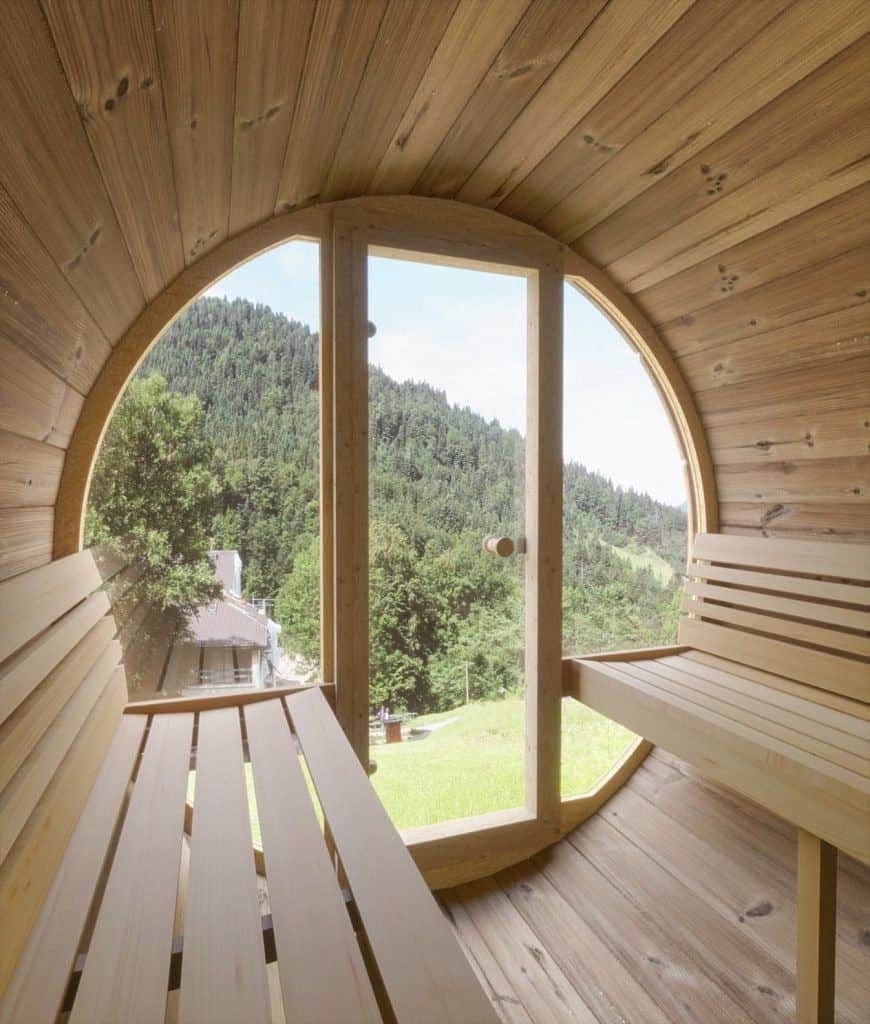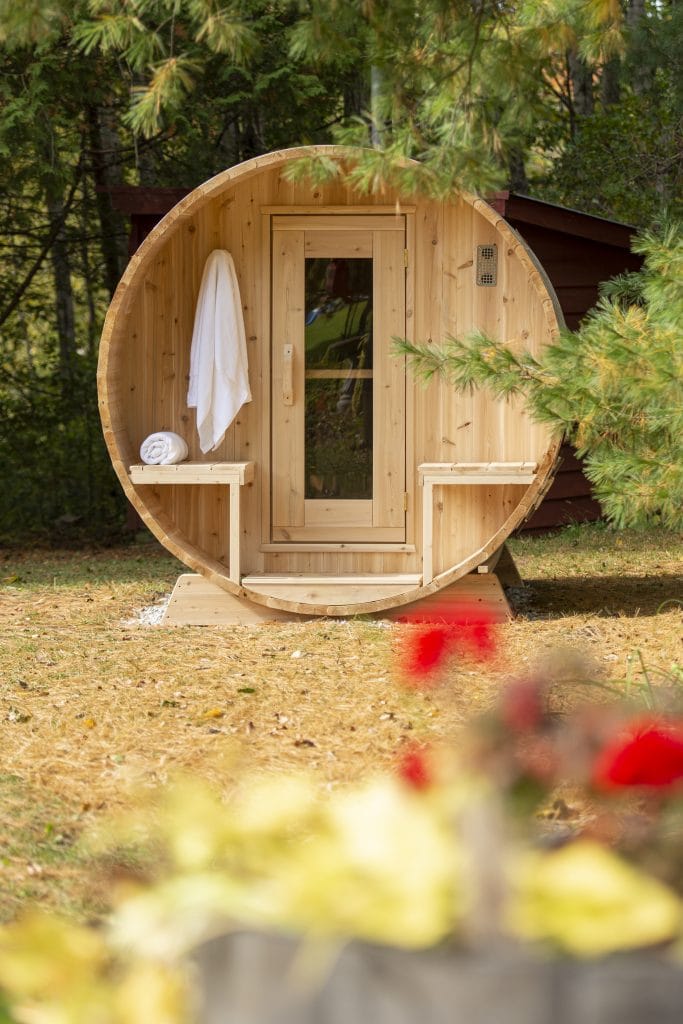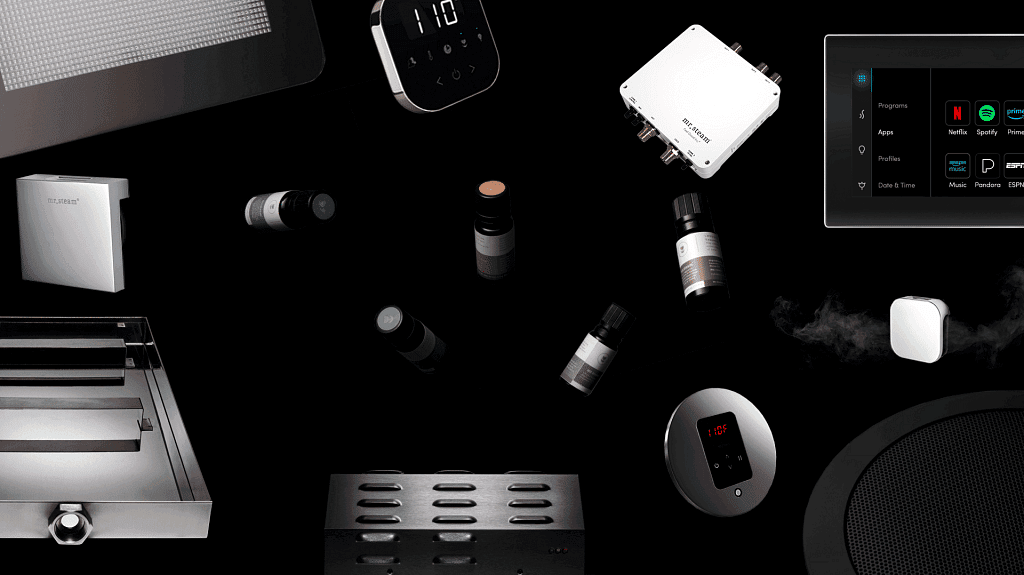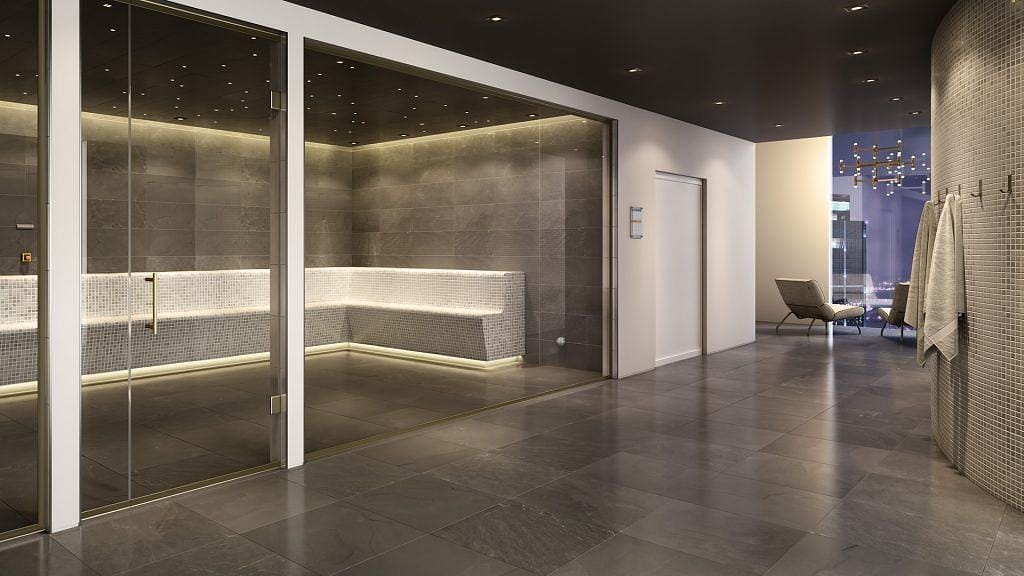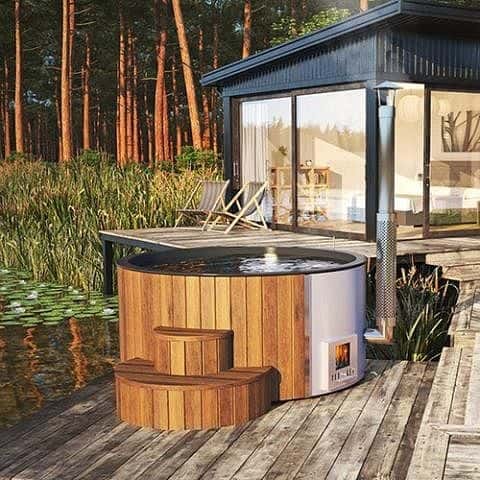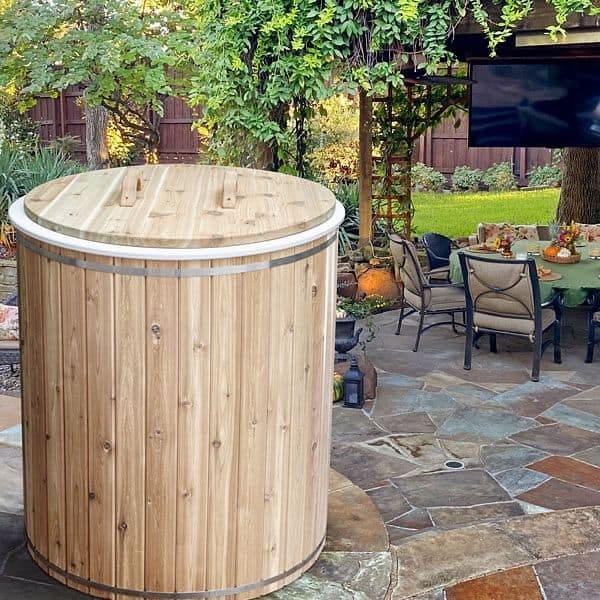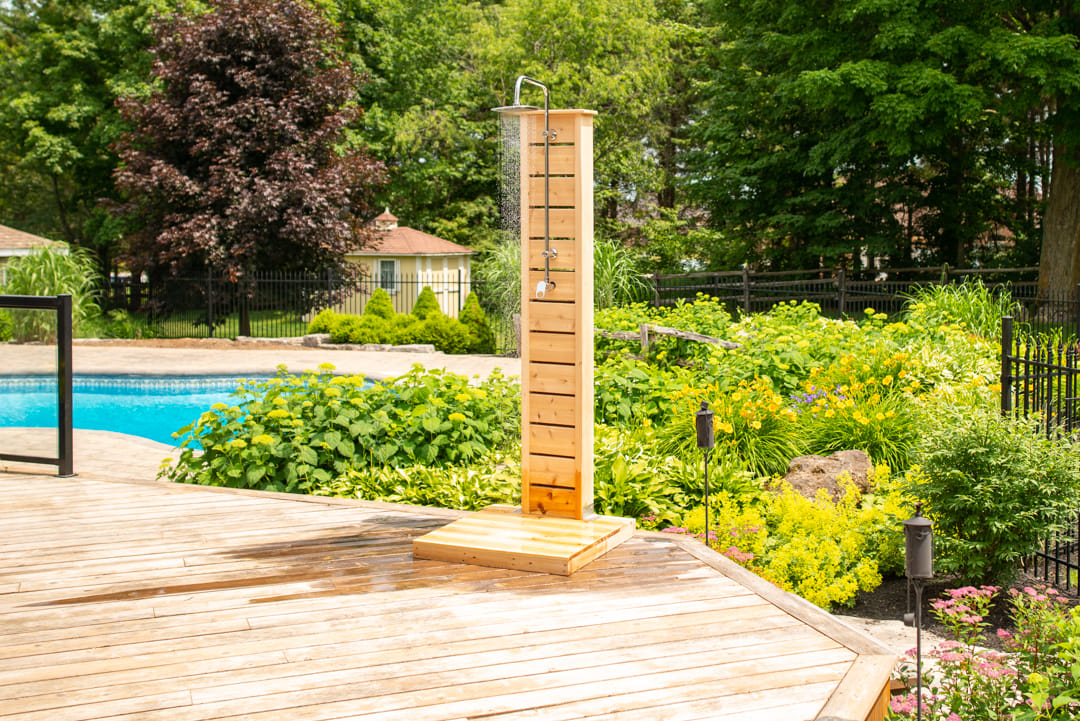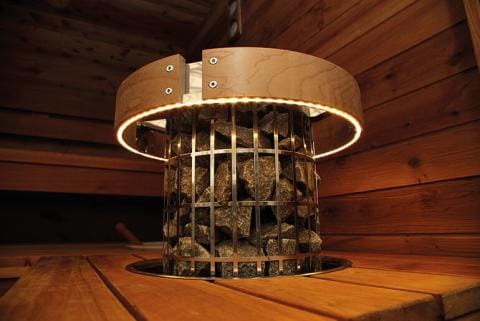Our Sauna Blog, Sauna
Sauna in Basement, Is It a Good Idea? All the Info Inside
Thinking whether you can turn that old basement into a sauna and not sure whether it’s a good idea or if it’s even possible? See all the info in our page.
Ever dream of having a sauna at home, but worried your basement might not be the ideal spot? Sweat no more! This guide will break down everything you need to know about installing a sauna in your basement. We’ll cover the pros and cons, from the ultimate relaxation factor to the nitty-gritty of ventilation and moisture control. We’ll also explore all the important considerations like size, cost, and even if a sauna is the right fit for you. So, grab a towel (figuratively, for now), and let’s dive into the world of basement saunas!
Sauna in Basement – Is That Possible?
Absolutely! A basement can be a fantastic location for a home sauna. It offers dedicated space for relaxation and can even add value to your property. However, successfully installing a sauna in your basement requires careful planning and specific features to ensure a safe and enjoyable experience.
There are three main requirements to consider before transforming your basement into a sweaty sanctuary:
- Available Space: Saunas come in various sizes, but they all require adequate headroom (ideally over 6 feet) and enough floor space to comfortably accommodate you and any potential sauna companions. Consider how many people you envision using the sauna regularly and choose a size that allows for comfortable movement.
- Proper Ventilation: Saunas generate significant heat and humidity. To prevent moisture damage and ensure a comfortable experience, proper ventilation is crucial. You’ll need an intake vent to draw in fresh air and an exhaust vent to expel hot, humid air. Ideally, these vents should be located on opposite walls to create efficient airflow.
- Moisture Resistance: The constant heat and humidity in a sauna can wreak havoc on your basement if not properly addressed. Using waterproof materials for the sauna walls, floor, and ceiling is essential. Additionally, a vapor barrier behind the wall panels will further prevent moisture from migrating into the basement itself.
Should You Have a Sauna in Your Basement?
Even if your basement meets the necessary requirements, there’s still the question of whether a sauna is the right fit for you. Here’s a breakdown of the pros and cons to help you decide:
Reasons Why You Should Have a Basement Sauna
- Convenience and Privacy: Having a sauna at home eliminates the need for gym memberships or scheduling appointments at public saunas. It provides a convenient and private space to relax and unwind at your own leisure. No more waiting in line or dealing with crowds – just step into your basement sauna whenever you need a moment of peace and rejuvenation.
- Health and Wellness Benefits: Regular sauna use offers a variety of health benefits, including improved circulation, muscle relaxation, stress reduction, and pain relief. The heat can help loosen tight muscles, ease joint pain, and improve blood flow. Additionally, sauna sessions can promote relaxation and better sleep, leaving you feeling refreshed and revitalized.
- Increased Home Value: A sauna can be a valuable addition to your home, potentially increasing its resale value. Many homebuyers see a sauna as a luxury amenity and are willing to pay a premium for a property that offers this feature. So, if you’re thinking about resale down the line, a basement sauna could be a worthwhile investment.
- Utilizing Underused Space: Basements often become neglected storage areas, filled with clutter and collecting dust. A sauna offers a fantastic way to transform this underutilized space into a functional and luxurious haven for relaxation and self-care. It breathes new life into your basement, creating a dedicated wellness zone that adds value and enjoyment to your home.
Reasons Why You Shouldn’t Have a Basement Sauna
While a basement sauna offers undeniable benefits, there are also some drawbacks to consider before making a decision:
- Installation Costs: Building a sauna can be a significant investment. The cost of materials, ventilation systems, and professional installation can quickly add up. Factor in the potential need for additional electrical work to power the sauna heater.
- Maintenance Requirements: Saunas require regular maintenance to ensure they function safely and efficiently. This includes cleaning the wood panels, checking the ventilation system, and replacing heater components when necessary. Be prepared to dedicate time and effort to keeping your sauna in top condition.
- Moisture Management: Even with proper ventilation and moisture barriers, basements are naturally prone to humidity. Sauna use will further increase moisture levels, so meticulous ventilation and cleaning are crucial. If you’re not vigilant about moisture control, you risk mold growth and potential damage to your basement structure.
- Limited Space: Not all basements offer the necessary space for a comfortable sauna. Consider the headroom and floor area required, ensuring there’s enough room for movement and proper ventilation. A cramped sauna can be an unpleasant and potentially unsafe experience.
- Basement Sauna Sounds Too Complicated? Maybe it’s better to try outdoor saunas instead.
Decided You Want a Sauna in Your Basement?
Here Is What You Have to Know
If you’ve weighed the pros and cons and a basement sauna is calling your name, here are some crucial things to know before diving in:
- Planning and Permits: Research local building codes and permit requirements for saunas. Consult with a contractor experienced in sauna construction to ensure your design meets safety and ventilation regulations. They can help you navigate the permitting process and ensure a smooth installation.
- Sauna Type and Size: Decide between a traditional dry sauna or a steam sauna. Dry saunas use hot air to create a sweating experience, while steam saunas provide a more moist heat. Choose the size that best suits your needs and available space, ensuring comfortable seating and proper air circulation.
- Ventilation and Electrical: Proper ventilation is essential to remove excess heat and humidity. Work with your contractor to design an efficient ventilation system with intake and exhaust vents. You’ll also need a qualified electrician to assess your electrical panel and ensure it can handle the additional load of the sauna heater.
- Materials and Construction: Select high-quality, moisture-resistant materials for the sauna walls, floor, and ceiling. Cedarwood is a popular choice for its durability and insulating properties. Ensure proper insulation to maintain heat efficiently and prevent heat loss into the basement.
By carefully considering these factors and consulting with professionals, you can transform your basement into a relaxing and luxurious sauna retreat. Enjoy the convenience and health benefits of having a sauna right at home!
- Decided you want a sauna? Look at all our indoor saunas

